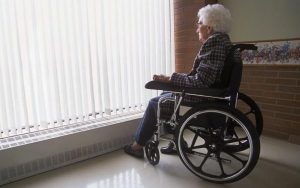Elderly denied support as councils struggle to cope with national living wage bills
The flagship Government policy, which came into effect in April and guarantees £7.20 an hour for those aged 25 and over, has left English councils searching for an extra £600 million, according to the Association of Directors of Adult Social Services (ADASS).
Overall, local authorities need an extra £1.1bn just to maintain the level of care they provided last year, the ADASS report reveals.
The shortfall means that, despite the older population increasing in size by 3 per cent last year, there was no increase in the number of elderly people receiving services.
For those currently receiving support, the bleak financial outlook means individual care budgets will be trimmed down, the association warned yesterday.
The pinch is also likely to mean social care directors retreat from providing optional services, like day centres, in an attempt to continue meeting their core statutory duties.
About nine in ten councils have taken advantage of a rule allowing them to raise council tax by 2 per cent for adult social care as a way of meeting the wage bill hike.
However, yesterday’s report said the measure had raised less than two thirds of the amount required because less well off areas with the greatest need for cash were able to raise the least from the council tax rise.
ADASS President Harold Bodmer said adult social care providers had “nowhere else to goâ€.
“We’re at a tipping point where social care is in jeopardy, and unless the Government addresses the chronic underfunding of the sector, there will be worrying consequences for the NHS and, most importantly, older and disabled people, their families and carers.
Vicky McDermott, chair of the Care and Support Alliance, said the figures made “grim readingâ€.
She urged the new Prime Minister Theresa May to tackle the funding crises as a priority.
